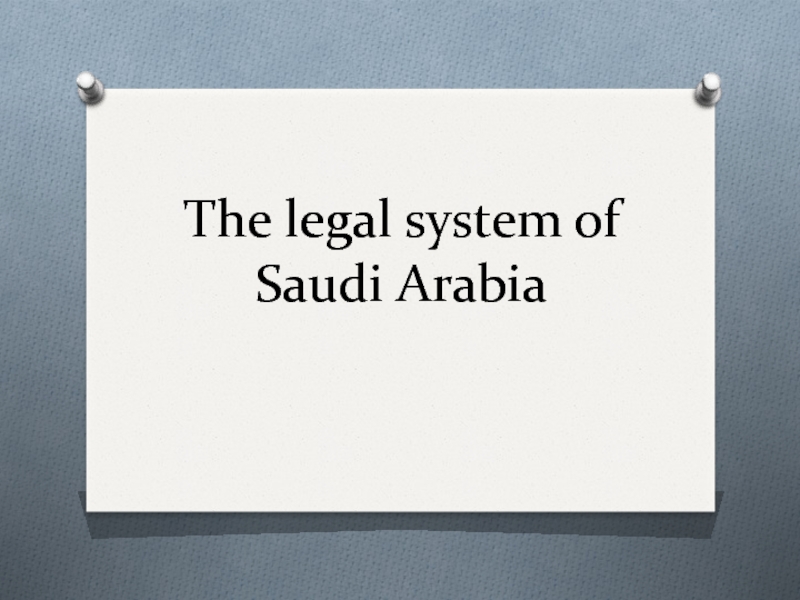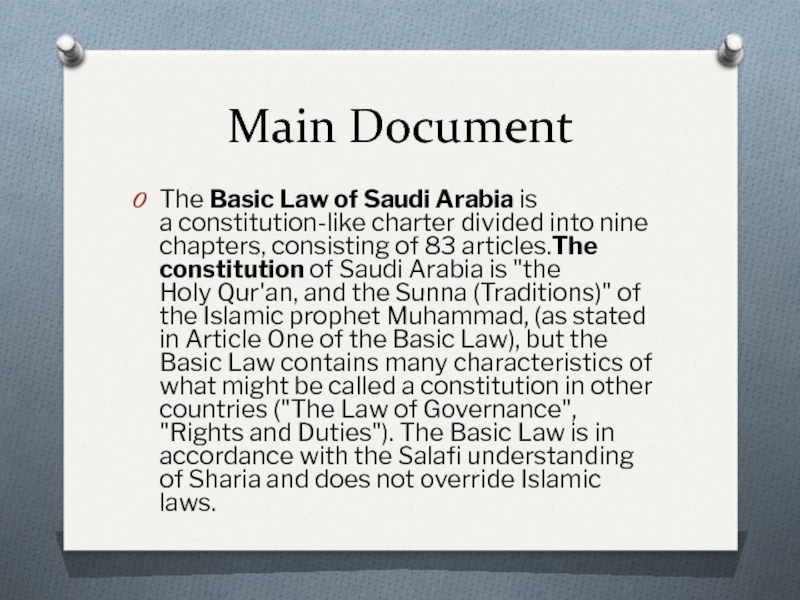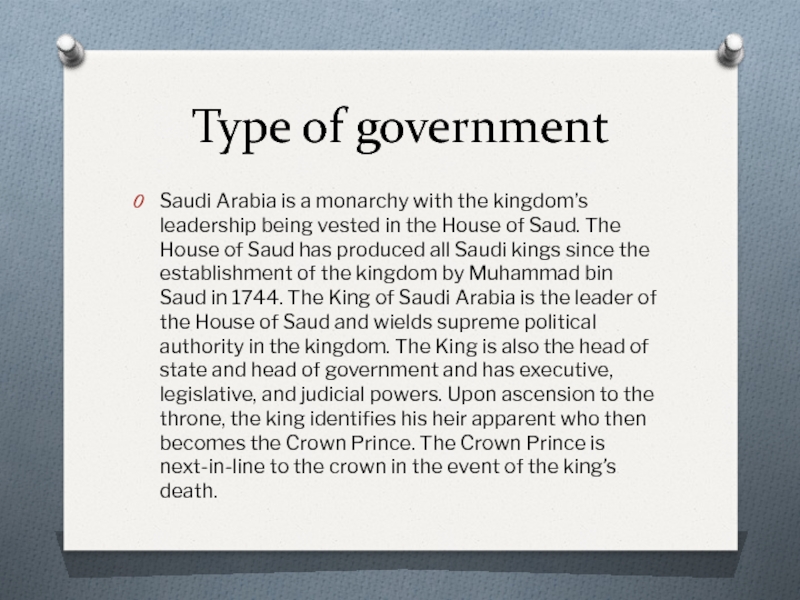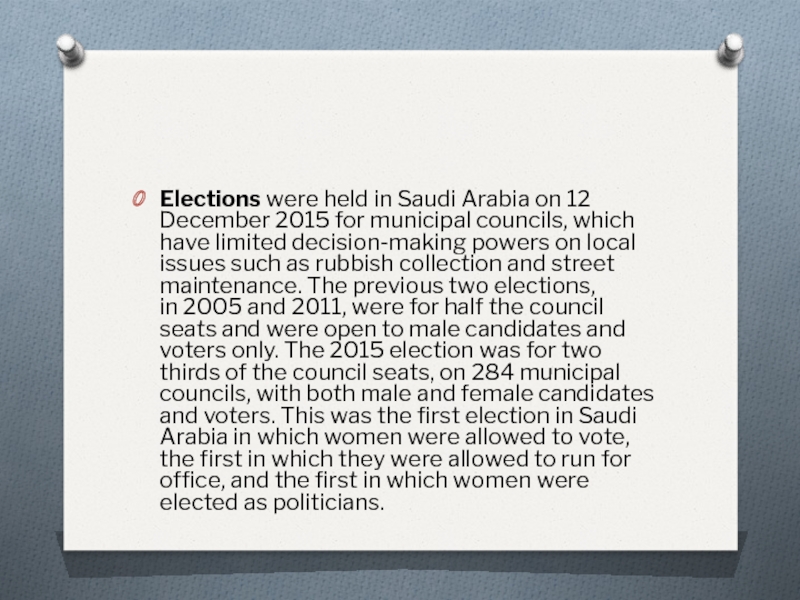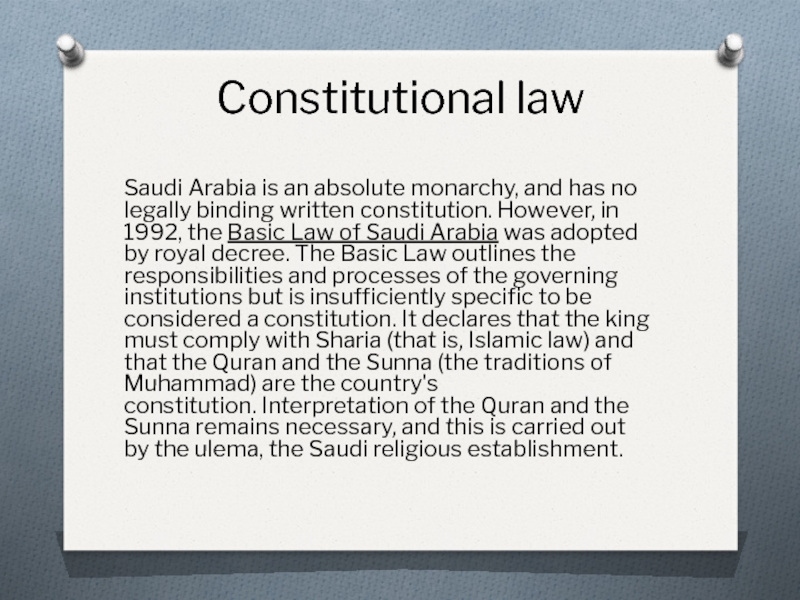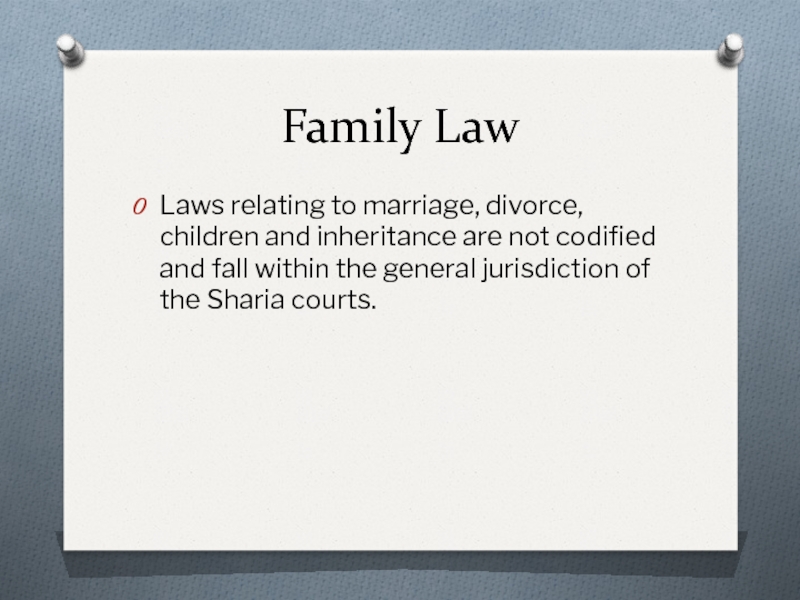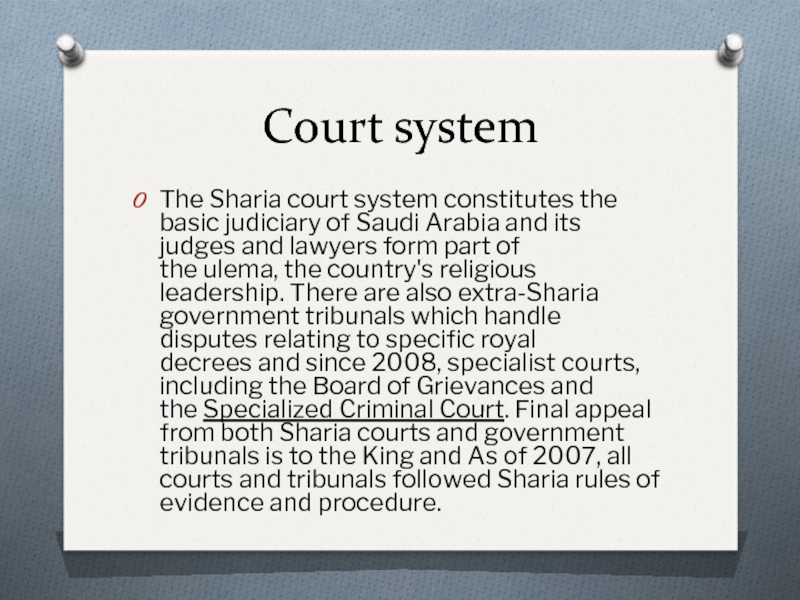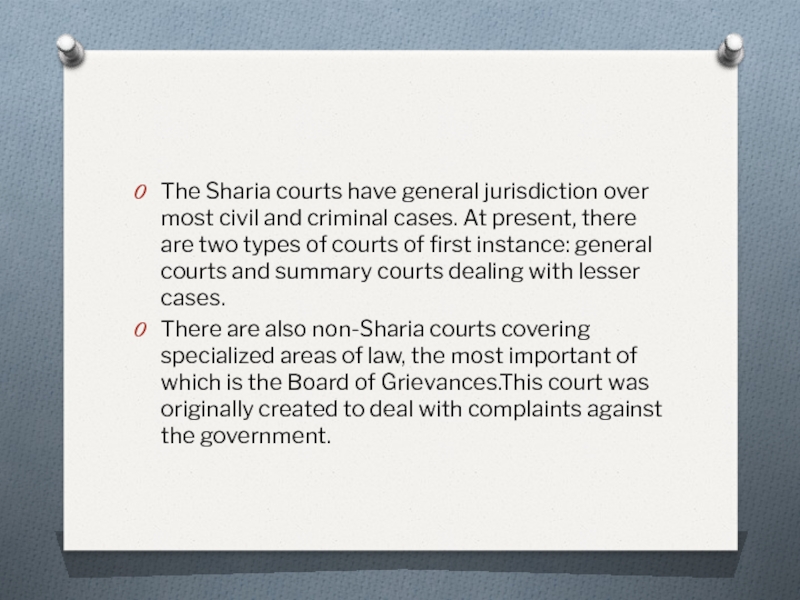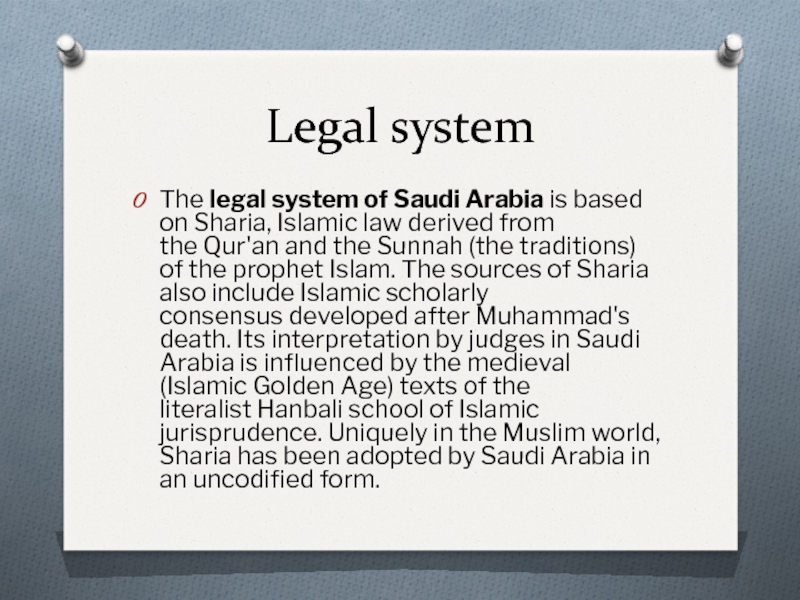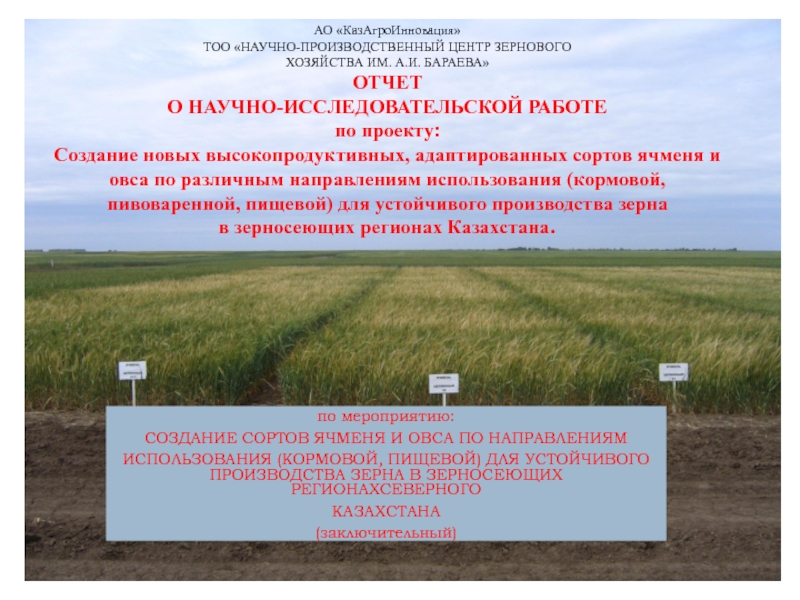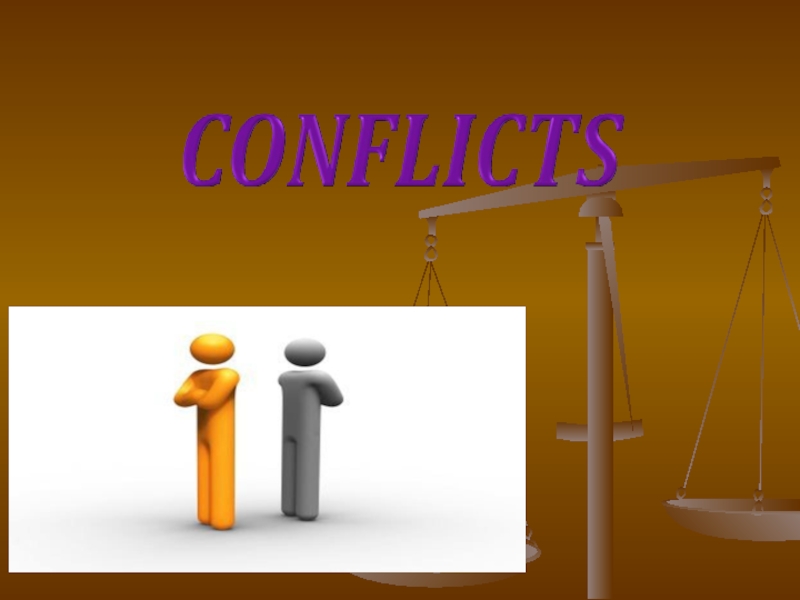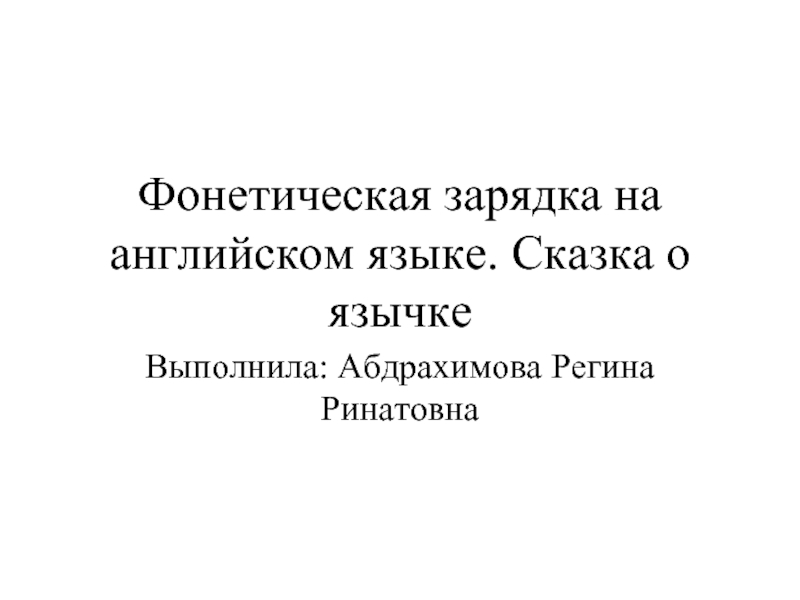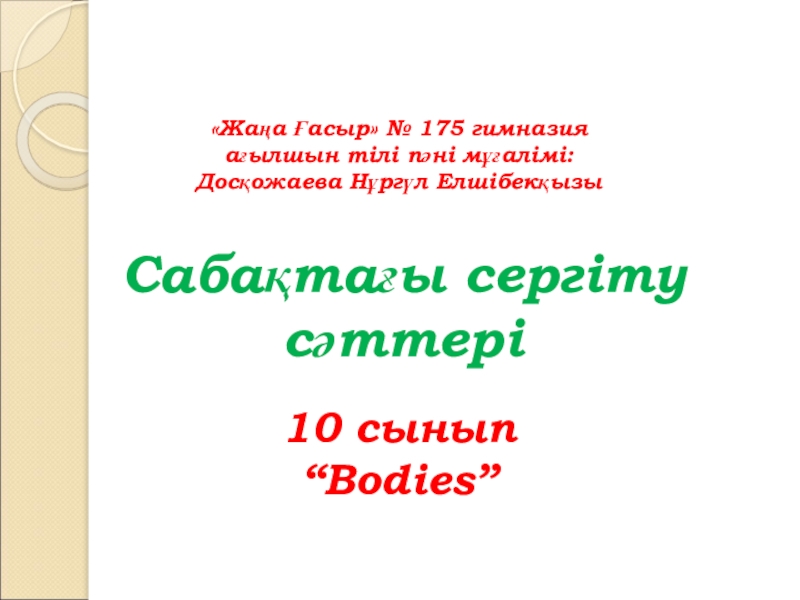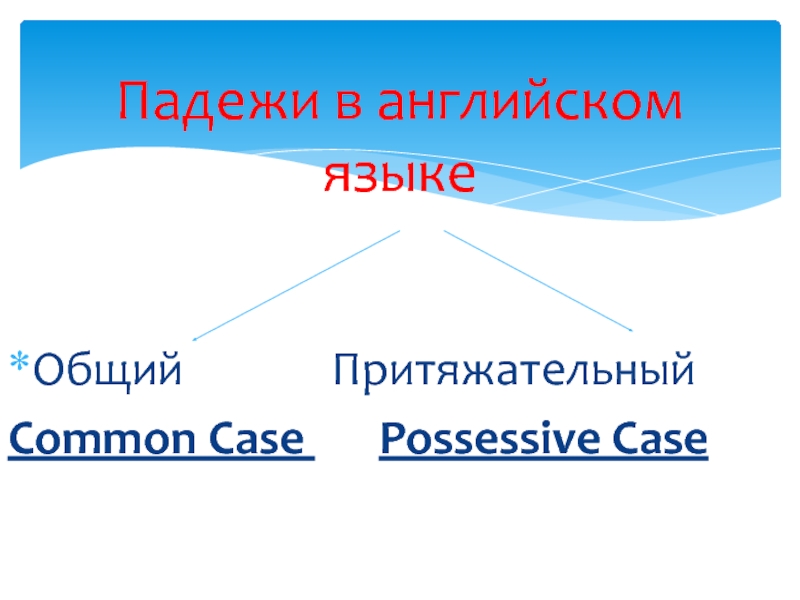Разделы презентаций
- Разное
- Английский язык
- Астрономия
- Алгебра
- Биология
- География
- Геометрия
- Детские презентации
- Информатика
- История
- Литература
- Математика
- Медицина
- Менеджмент
- Музыка
- МХК
- Немецкий язык
- ОБЖ
- Обществознание
- Окружающий мир
- Педагогика
- Русский язык
- Технология
- Физика
- Философия
- Химия
- Шаблоны, картинки для презентаций
- Экология
- Экономика
- Юриспруденция
The legal system of Saudi Arabia 11 класс
Содержание
- 1. The legal system of Saudi Arabia 11 класс
- 2. Plan Main Document Type of governmentElection process Branches of Law Court system Legal system
- 3. Main DocumentThe Basic Law of Saudi Arabia is a constitution-like
- 4. Type of government Saudi Arabia is a
- 5. Election process Elections in Saudi Arabia have been historically
- 6. Elections were held in Saudi Arabia on 12 December
- 7. Branches of LawConstitutional lawCriminal lawFamily law
- 8. Constitutional law Saudi Arabia is an absolute monarchy, and
- 9. Criminal Law Criminal law is governed by
- 10. Family LawLaws relating to marriage, divorce, children
- 11. Court system The Sharia court system constitutes
- 12. The Sharia courts have general jurisdiction over
- 13. Legal system The legal system of Saudi Arabia is
- 14. Скачать презентанцию
Plan Main Document Type of governmentElection process Branches of Law Court system Legal system
Слайды и текст этой презентации
Слайд 3Main Document
The Basic Law of Saudi Arabia is a constitution-like charter divided into
nine chapters, consisting of 83 articles.The constitution of Saudi Arabia
is "the Holy Qur'an, and the Sunna (Traditions)" of the Islamic prophet Muhammad, (as stated in Article One of the Basic Law), but the Basic Law contains many characteristics of what might be called a constitution in other countries ("The Law of Governance", "Rights and Duties"). The Basic Law is in accordance with the Salafi understanding of Sharia and does not override Islamic laws.Слайд 4Type of government
Saudi Arabia is a monarchy with the
kingdom’s leadership being vested in the House of Saud. The
House of Saud has produced all Saudi kings since the establishment of the kingdom by Muhammad bin Saud in 1744. The King of Saudi Arabia is the leader of the House of Saud and wields supreme political authority in the kingdom. The King is also the head of state and head of government and has executive, legislative, and judicial powers. Upon ascension to the throne, the king identifies his heir apparent who then becomes the Crown Prince. The Crown Prince is next-in-line to the crown in the event of the king’s death.Слайд 5Election process
Elections in Saudi Arabia have been historically rare. Municipal elections were held in
2005 and were planned for 2009. After two years' delay, they
were held in 2011. In September 2011, King Abdullah granted women the right to vote and stand in the 2015 municipal elections.Слайд 6Elections were held in Saudi Arabia on 12 December 2015 for municipal
councils, which have limited decision-making powers on local issues such
as rubbish collection and street maintenance. The previous two elections, in 2005 and 2011, were for half the council seats and were open to male candidates and voters only. The 2015 election was for two thirds of the council seats, on 284 municipal councils, with both male and female candidates and voters. This was the first election in Saudi Arabia in which women were allowed to vote, the first in which they were allowed to run for office, and the first in which women were elected as politicians.Слайд 8Constitutional law
Saudi Arabia is an absolute monarchy, and has no legally binding
written constitution. However, in 1992, the Basic Law of Saudi Arabia was adopted
by royal decree. The Basic Law outlines the responsibilities and processes of the governing institutions but is insufficiently specific to be considered a constitution. It declares that the king must comply with Sharia (that is, Islamic law) and that the Quran and the Sunna (the traditions of Muhammad) are the country's constitution. Interpretation of the Quran and the Sunna remains necessary, and this is carried out by the ulema, the Saudi religious establishment.Слайд 9Criminal Law
Criminal law is governed by Sharia and comprises
three categories: hudud (fixed Quranic punishments for specific crimes), Qisas (eye-for-an-eye retaliatory punishments), and Tazir,
a general category. Hudud crimes are the most serious and include theft, robbery, blasphemy, apostasy, adultery, sodomy and fornication. Qisas crimes include murder or any crime involving bodily harm.Tazir represents most cases, many of which are defined by national regulations such as bribery, trafficking, and drug abuse. The most common punishment for a Tazir offence is lashing.Слайд 10Family Law
Laws relating to marriage, divorce, children and inheritance are
not codified and fall within the general jurisdiction of the
Sharia courts.Слайд 11Court system
The Sharia court system constitutes the basic judiciary
of Saudi Arabia and its judges and lawyers form part of
the ulema, the country's religious leadership. There are also extra-Sharia government tribunals which handle disputes relating to specific royal decrees and since 2008, specialist courts, including the Board of Grievances and the Specialized Criminal Court. Final appeal from both Sharia courts and government tribunals is to the King and As of 2007, all courts and tribunals followed Sharia rules of evidence and procedure.Слайд 12The Sharia courts have general jurisdiction over most civil and
criminal cases. At present, there are two types of courts of first
instance: general courts and summary courts dealing with lesser cases.There are also non-Sharia courts covering specialized areas of law, the most important of which is the Board of Grievances.This court was originally created to deal with complaints against the government.
